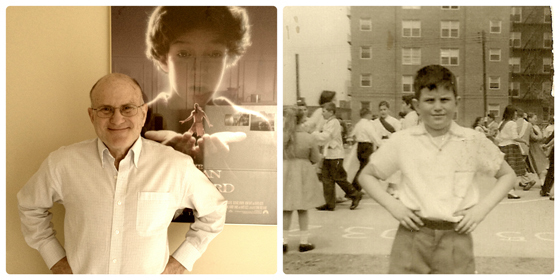One of my earliest memories is of me telling my parents I hated school. Even in kindergarten, over 60 years ago, I already knew that I despised school. I hated sitting in my seat, hated being quiet and was bored, bored, bored. Their response was simple. "Get used to it," my father said. "Do you think I enjoy myself at the office?"
Getting used to being bored was never going to happen, and unlike some kids, I was biochemically incapable of sitting still unless my attention was fully engaged. Instead of trying to find ways to help me, adults said I just wasn't trying hard enough. The solution to my difficulties, they said, was to focus, control myself and do what I was told. School was serious work, requiring discipline, tenacity and endurance. To think anything else, to want or hope that I would be interested in or enjoy classwork, was preposterous.
Looking back, I'm not sure who had it worse, the kids like myself who were a daily, nagging reminder that education was broken, or the kids who somehow managed to swallow their boredom, sit still and stay out of trouble. Either way, no one I knew was having a good time, including friends who eventually did brilliantly on their SATs (yes, we had them). School was sheer misery.
Today's kids may also be bored, but they have a few more options at their disposal. In addition to daydreaming, dozing off and passing notes, they can find more interesting things to do on their electronic devices: send texts, Tweets and photos; take unflattering videos of their teachers and classmates (discouraged), play electronic games like "Angry Birds" and listen to music.
Most kids are forced to cope with a system that measures their success and that of their teachers based on how they perform on batteries of standardized tests. In classes devoted to test prep they are told to "get used to it," work harder and show some "grit." Clearly, little has changed from when I was a child. The conventional system still insists that kids get used to and participate in classes and homework that do not engage or interest them.
Fortunately, there is hope. Every night on Twitter I have the pleasure and honor of chatting with educators from overseas and all over North America. These educators don't believe that kids should or need to be bored in school. Many of them feel strongly that teaching should be child-centered, and that students and teachers should be partners in learning. They are inviting their students to take their smart phones and tablets out from under their desks and use them openly.
Using digital media, accessed through high speed Internet connections and devices provided by forward thinking school districts, teachers now have an entire world of books, video, photographs and news at their fingertips. These 21st century educators are welcoming the challenge of engaging their students in a world of easily accessed information, and finding creative ways to make their classrooms student centered, relevant and authentic.
Ironically, the biggest challenge these progressive teachers face is not persuading their students, but coping with educational policy that is driven by politicians and the media. Education has been distilled into a set of "one-size fits all" common core standards. But schools are not factories, and success should not be defined by a set of industrial standards based on testing. Schools should be playgrounds for the mind - enticing, safe havens where a child's curiosity and imagination motivate and guide them towards not only careers but a lifetime of curiosity and learning as well.
